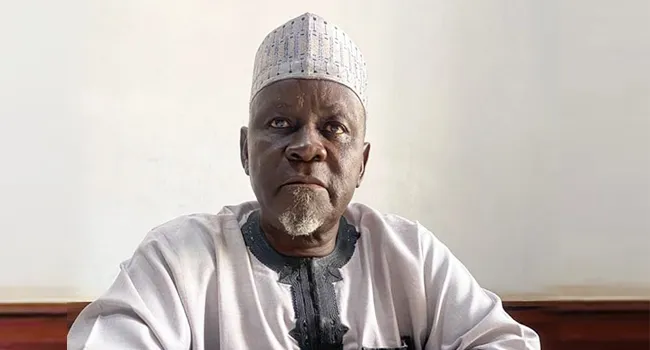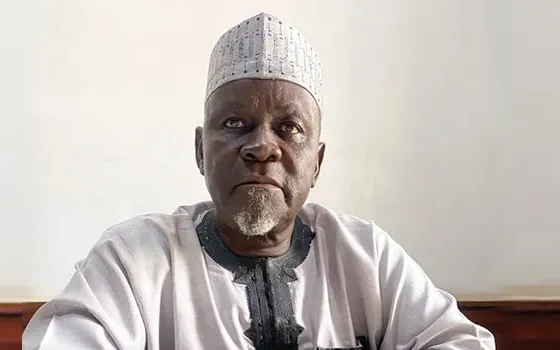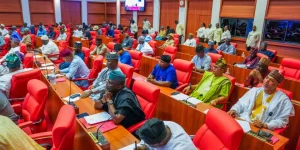

News
Senate Approves Removal of INEC RECs Over Bribery Allegations
Senate Approves INEC RECs Removal Over Alleged Bribery and Electoral Misconduct
On February 5, 2025, the Nigerian Senate approved President Bola Tinubu’s request to remove three suspended Resident Electoral Commissioners (RECs) from their positions following allegations of bribery and electoral misconduct. The decision came after an investigation revealed that Nura Ali, one of the suspended RECs, had accepted a $150,000 bribe to influence the 2023 elections in Sokoto State.
Key Allegations of Corruption Against INEC RECs
The bribery scandal involves Nura Ali, who reportedly confessed to receiving the substantial bribe from politicians to manipulate election results. The Office of the National Security Adviser (Nuhu Ribadu) and the Department of State Services (SSS) led the investigation, which confirmed the illegal activity. Senate Leader Opeyemi Bamidele presented these findings during the plenary, urging the Senate to approve the motion for the removal of the implicated RECs.
Senate’s Approval of INEC RECs Removal
During the plenary, more than two-thirds of the Senate voted in favor of the motion, in accordance with Section 157(1) of the Nigerian Constitution. This constitutional provision mandates the Senate’s approval for the removal of appointed officials such as the RECs. Despite a low attendance in the chamber, the required quorum was met, with Senate Chief Whip, Tahir Monguno, confirming that 94 senators, including principal officers, were present when the vote took place.
The Role of the Senate in Upholding Electoral Integrity
The motion to remove the suspended RECs also emphasized their role in compromising the integrity of the 2023 elections. Senator Bamidele highlighted how the officials had abandoned their duties and were involved in electoral malpractice. Minority Leader Abba Moro expressed support for the motion, underscoring the need to tackle corruption at every level of government, especially within key institutions like the Independent National Electoral Commission (INEC).
Impact of the INEC RECs Removal on Nigeria’s Electoral System
The Senate’s decision sends a clear message about Nigeria’s commitment to ensuring fair and transparent elections. Anti-corruption measures, such as the removal of corrupt officials, are crucial in maintaining trust in the electoral system. Further investigations and potential prosecutions by the relevant authorities are expected to follow the Senate’s resolution.
External Resources for Further Reading
For more information on electoral reform in Nigeria and the importance of accountability in public offices, you can refer to the following resources:
What Happens Next for the Suspended RECs?
The final approval for the removal of these suspended RECs lies with President Tinubu. Given the nature of the allegations, it is widely expected that the president will endorse the Senate’s resolution and direct law enforcement agencies to investigate further.
Background on the Suspended INEC RECs
The allegations against these RECs are not isolated. Hudu Yunusa-Ari, for example, was suspended after he prematurely declared Aisha Binani, the APC’s candidate, as the winner of the Adamawa State governorship election in 2023. His illegal declaration was later overturned by INEC. These actions highlight the need for continued reforms to safeguard Nigeria’s democratic processes.

Alt text: INEC RECs Removal Over Bribery Allegations in Nigeria





